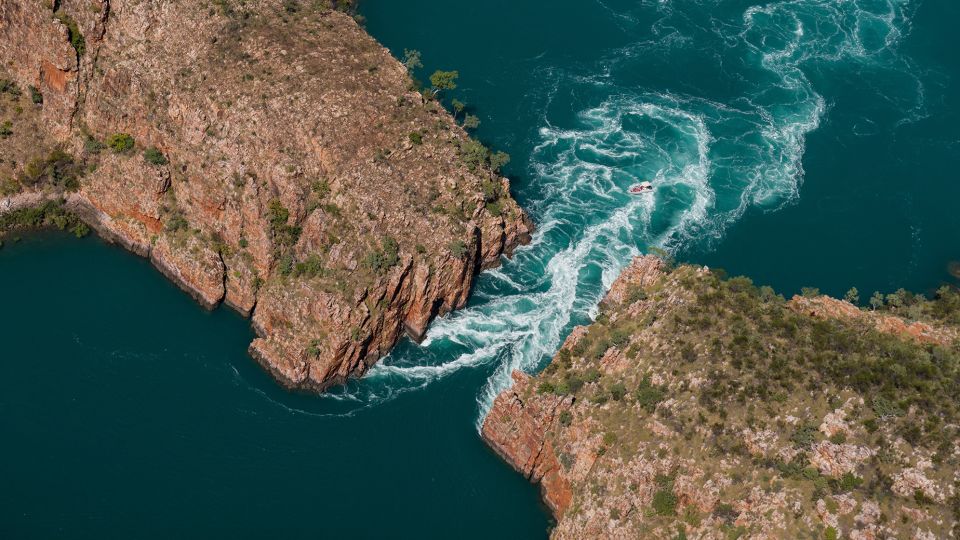Australia’s Horizontal Falls are a unique natural wonder that will soon be off-limits to boat tours due to safety concerns and respect for the area’s Indigenous Traditional Owners. Located at Talbot Bay on Australia’s northwestern coastline, the falls are created when seawater surges between narrow cliff gaps, creating a spectacular waterfall-like effect. The ban on boat tours is set to take effect by 2028, although close-up views of the falls will still be permitted for visitors.
The move to ban boat tours at the Horizontal Falls has been met with mixed reactions. The Western Australian Tourism Council has warned that it will deter visitors and result in major job losses, while the Dambeemangaddee people, who have inhabited the area for thousands of years, welcome the decision. The ban is part of a broader effort by the Western Australian government to protect Indigenous sites and work collaboratively with Traditional Owners on conservation efforts and cultural preservation.
The Horizontal Falls ban is driven by the Indigenous belief that boats disturbing the falls disrupt the mystical serpent Woongudd, who created the site. According to the Dreamtime stories passed down through generations, the rushing tide at the falls is attributed to Woongudd gliding between the cliffs. The Traditional Owners hope that visitors will continue to explore the area while maintaining a respectful distance and understanding the cultural significance of the site.
In response to the forthcoming ban on boat tours, the Dambeemangaddee people are creating new materials to educate visitors about their cultural connection to Talbot Bay. They are developing videos, brochures, and visitor management plans to ensure that tourists can continue to experience the awe-inspiring tidal forces of the Horizontal Falls in a respectful manner. The aim is to promote awareness of Indigenous culture and environmental stewardship in the region.
Critics of the ban, including the WA Tourism Council, argue that restricting access to the Horizontal Falls will reduce visitor numbers and impact the tourism industry in the Kimberley region. However, supporters of the ban point out that the safety and cultural considerations outweigh the potential economic consequences. Tour operators like Kimberley Day Cruise emphasize the importance of respecting the Traditional Owners and ensuring that visitors can appreciate the natural beauty of the area without intruding on its sacred significance.
Overall, the Horizontal Falls ban represents a step towards balancing the preservation of Indigenous heritage and environmental resources with the demands of tourism and economic development. It reflects a growing recognition of the importance of Indigenous voices in conservation efforts and a commitment to sustainable tourism practices. As Western Australia works to protect its natural and cultural treasures, visitors are encouraged to appreciate the power and significance of places like the Horizontal Falls in a way that honors and respects their Indigenous custodians.


